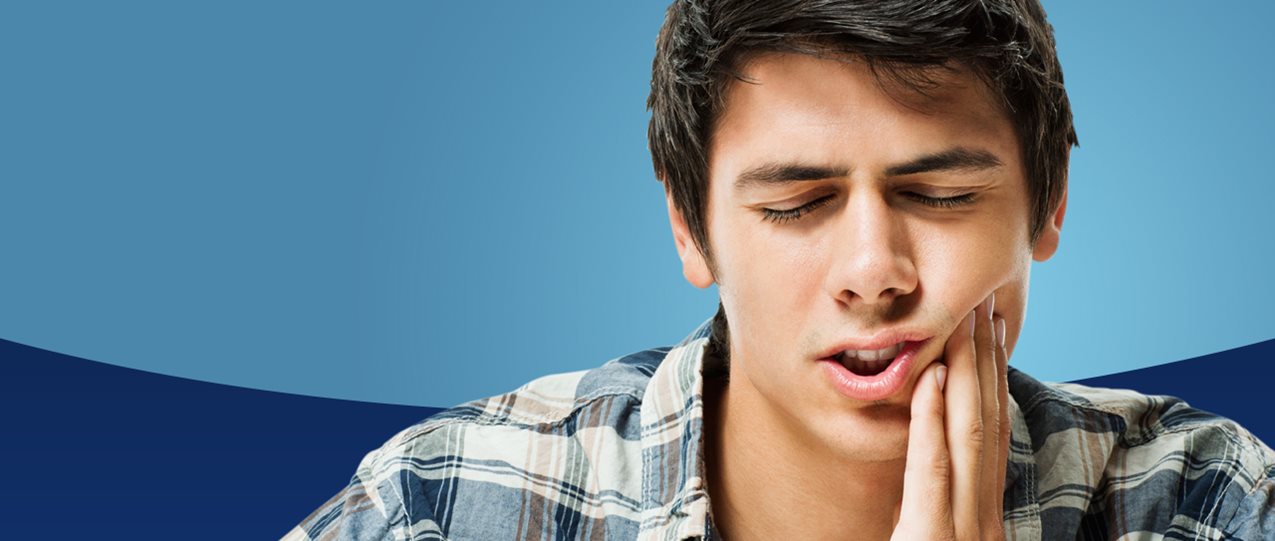


If you’re living with a throbbing tooth pain, you are feeling a pain that comes and goes with varying degrees of intensity. This usually means there is a surplus of blood feeding the tooth’s inflammation. It gets more intense if you lie down or bend over. You may get a fever or localized swelling around the tooth. You can also see discharge near the affected tooth and even a headache. You should see a dentist if the pain goes on for more than a day and symptoms become extreme.

1. Pain from Cavities
Many times, you will have pain from cavities. Even a small cavity can cause throbbing pain. This is especially true when eating something that is on the very hot or very cold temperature spectrum. The cavity can produce nerve damage and pain.
Treatment
A dentist is best for determining the cause and helping you treat the pain with a filling. There are cases where the dentist will call for an extraction or root canal of the tooth.
2. Root Sensitivity
If you find that your teeth are sensitive to everything including extreme temperatures, cold weather and sweet foods, you may have root sensitivity.
Treatment
One way to minimize the problem is to use desensitizing toothpaste. This can help to block the pores which send the pain signals to your brain. To get the best results, use the toothpaste for at least three weeks.
3. Gum Disease
Gum disease can be another reason for your throbbing tooth pain. Gum disease can lead to tooth decay, hypersensitivity, and pus formation, all producing pain.
Treatment
For treatment, you will need to see a dentist or specialist. This may include cleaning the gums, or other more intense procedures to clear away pus. Severe cases may require antibiotics and surgery.
4. Sinus Issues
There are some people who have sinus trouble that also causes throbbing pain in teeth. The sinuses and roots of your teeth are close together; therefore pressure for your sinus can irritate your roots.
Treatment
In some cases, your physician may need to check your sinuses and administer proper treatment.
5. Pulpitis
There are some medical conditions such as pulpitis that can cause throbbing pain. In this condition, the tooth pulp is inflamed. There are two types of pulpitis: reversible and irreversible. With reversible, treatment will help, but irreversible doesn’t respond to treatment. This condition may be from crowns that didn’t fit, bruxism, injury or cavities.
Treatment
It can be treated with pain relievers, medications and in some patients, extraction.
6. Tooth Extraction
Some medical procedures, such as an extraction, can cause throbbing tooth pain. You can expect this to last for a few days post procedure, and up to a week. The pain depends on the level of procedure.
Treatment
Your dentist may offer pain relief to help until the symptoms subside.
7. Root Canal
An extremely damaged or dying tooth may need a root canal to repair it. This procedure will remove the damaged area of tooth. It can be cleaned and then refilled. Some causes of root canals are commonly a deep cavity, cracked tooth or injury. Repetitive treatments will often be required.
Treatment
It’s important to remember that good oral hygiene can help to ward off throbbing pain in teeth. You need to visit your dentist regularly. You also want to brush your teeth at least twice a day and floss daily. This will help to keep bacteria at bay, and promote healthy teeth and gums.
8. Fillings
It can be very common to experience a throbbing tooth pain after getting a filling. With a normal condition, this pain can last just a few days or as long as a week or two. The characteristics of the pain are that the treated tooth will be more sensitive to hot and cold temperatures as well as air flow, sweets and pressure.
Treatment
When you are dealing with this condition there are a few things you can do to help your tooth. They include:
If you don’t find relief by the end of the following week you should definitely contact your dentist. This could mean there’s a problem with the tooth or filling itself.
9. Crowns
For those who are considering a crown, prepare for some pain after you get it. This is usually from:
Treatment
For treating the pain try:
10. Tooth Decay
Poor dental hygiene and poor diet can cause tooth decay.
Treatment
Depending on how much tooth decay there is, treatment can mean an amalgam or composite filling. If there is nerve damage and exposure of the root pulp, a root canal may be necessary. If there is more than one tooth involved, meaning a filling is impractical, a veneer or crown is needed.
11. An Abscessed or Infected Tooth
Abscess and infection can happen when a tooth decays or experiences trauma.
Treatment
Treatment will often start with pain management and antibiotics. A follow-up will be recommended for a root canal. Finally, the weak tooth can receive a crown or veneer.
12. Fractured or Cracked Teeth
When people grind their teeth, fractures and cracks can occur. They can also happen from years of use.
Treatment
Usually, a protective covering such as veneers or crowns will be added to a cracked tooth.